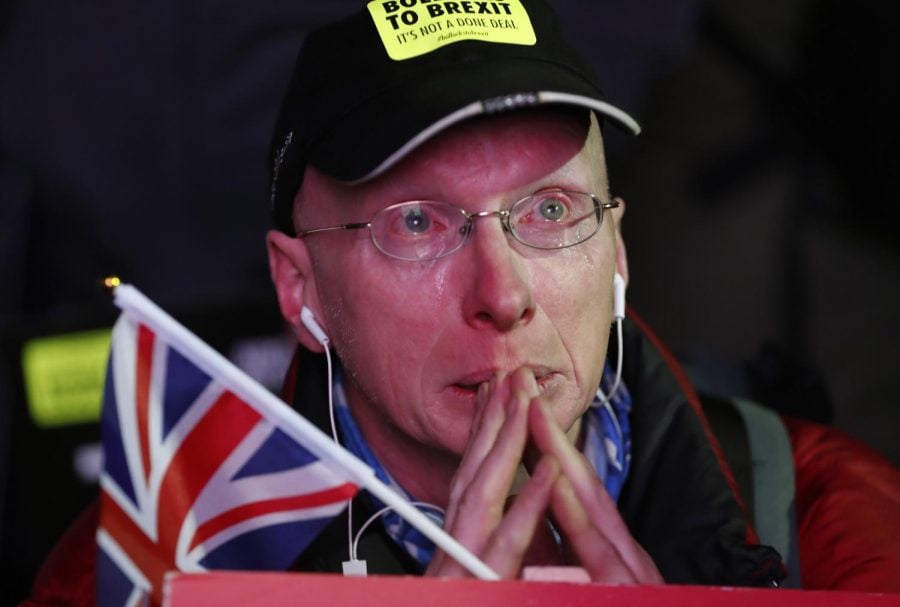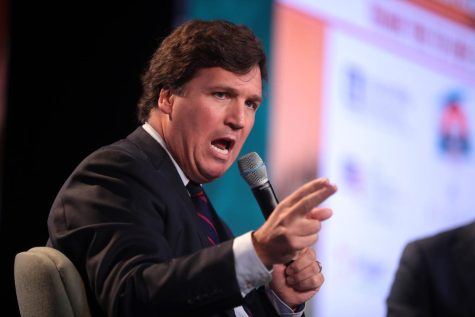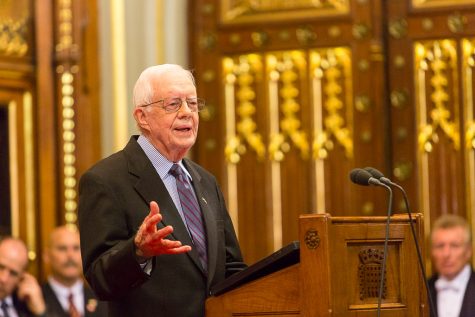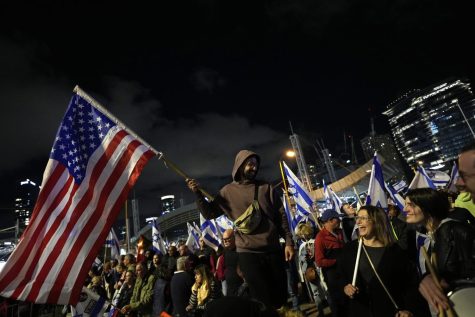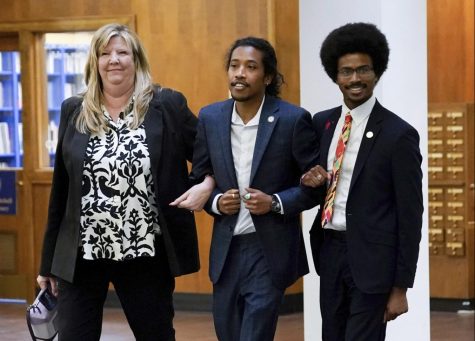Brexit uncertainty hits students
The British parliament rejected Prime Minister Theresa May’s Brexit plan in a historically brutal vote last Tuesday. With MPs voting 432 to 202 to reject the deal, British prospects for a Brexit deal were thrown into doubt.
This was huge news for DePaul senior Glenn Johnston, who currently interns in the Irish Parliament as part of a study abroad program. “Since they have to have a deal by March, I’ll be here when that happens — so that’ll be huge to see,” said Johnston.
“If we aren’t able to work something out here, putting British soldiers on the ground could lead to genuine conflict and violence in Ireland,” he added.
Updates on whether or not Britain will secure terms for itself before leaving the European Union on March 29 have been followed closely in Ireland because of the effects Brexit will have on the border between the Irish Republic and Northern Ireland, the latter of which is a part of the United Kingdom.
A key goal of Brexit is for the U.K. to obtain greater control over its borders, which are open for internal travel within the European Union. The Good Friday Agreement, a diplomatic triumph from 1998, created an easy-to-cross soft border between North Ireland and the Irish Republic. Without a specific deal, Brexit could ruin this agreement and force the U.K. to station soldiers on the Northern Irish border.
For Sam Strachan, a British student at the University of Birmingham, the uncertainty around Brexit is concerning. “We have no idea where we’re going to be in a year’s time, or even a week’s time,” he said. “We could be leaving the EU with no deal on the 29th of March. We could end up remaining. We could wake up to a snap election tomorrow; it’s that unpredictable.”
According to DePaul professor Erik Tillman, who specializes in European politics, this might be an overblown concern. “All parties are committed to maintaining the open border for people, so it’s unlikely that a ‘hard border’ will come into being,” Tillman said.
But to Ellen Delilah, a British university student from Oxford, the Irish border issue is particularly worrisome. “The Irish border took 1,200 years to sort out, and the Good Friday agreement is a fragile peace at best,” Delilah said.
“Whatever they decide with the Irish border, they’ve got to contend with a lot of history and potential violence,” said Strachan.
Johnston sees the concerns over a hard Irish border firsthand in his internship work for Colm Brophy, a representative who chairs the Irish Parliament’s Committee on European Union Affairs.
“I really knew nothing going into this, and it’s pretty much the talk of the town,” said Johnston. “It’s talked about every day here, so I’ve gotten a crash course in every part of it.”
Regardless of what a post-Brexit U.K. looks like when it finally happens in March, university students will likely be hit by a new lack of mobility. “What Americans don’t think about is, imagine if you got your degree in Illinois, but you had to get permission to work in California, or Wisconsin,” said DePaul political science professor Dick Farkas. “Think about how debilitating that would be. The long-term effects are dampening, maybe damning even.
“It’s almost inevitable that DePaul students can be asked to work overseas. So if you get a job at one of the 150 largest corporations in Chicago, every single one of those has foreign operations. Getting you permission to work in England is going to be a real pain, but if [they] get you permission to work in the EU, [they] can put you in Vienna, Stockholm, Amsterdam, and move you around.”
Living in the U.K., Strachan is particularly affected by this. “I can’t stay in Britain if Brexit goes through. I’d have to move to Europe, which would obviously be a lot harder,” he said.
For the next 10 weeks, Johnston and the other students in his Dublin-based program will be immersed in the intricacies of Irish economics and border politics. While it can sometimes feel fairly removed from the world of DePaul’s Lincoln Park campus, Johnston believes the experience will be invaluable to him going forward.
“Obviously it’s a completely different playing field here, but I think a lot of what I’m learning are things I can bring home,” he said. “Comparing what works and doesn’t work here to the American political system would be hugely beneficial to our country of understanding how to improve ourselves.”


